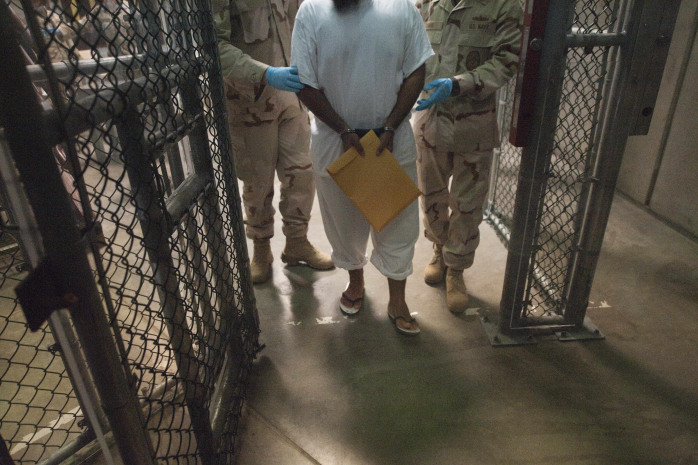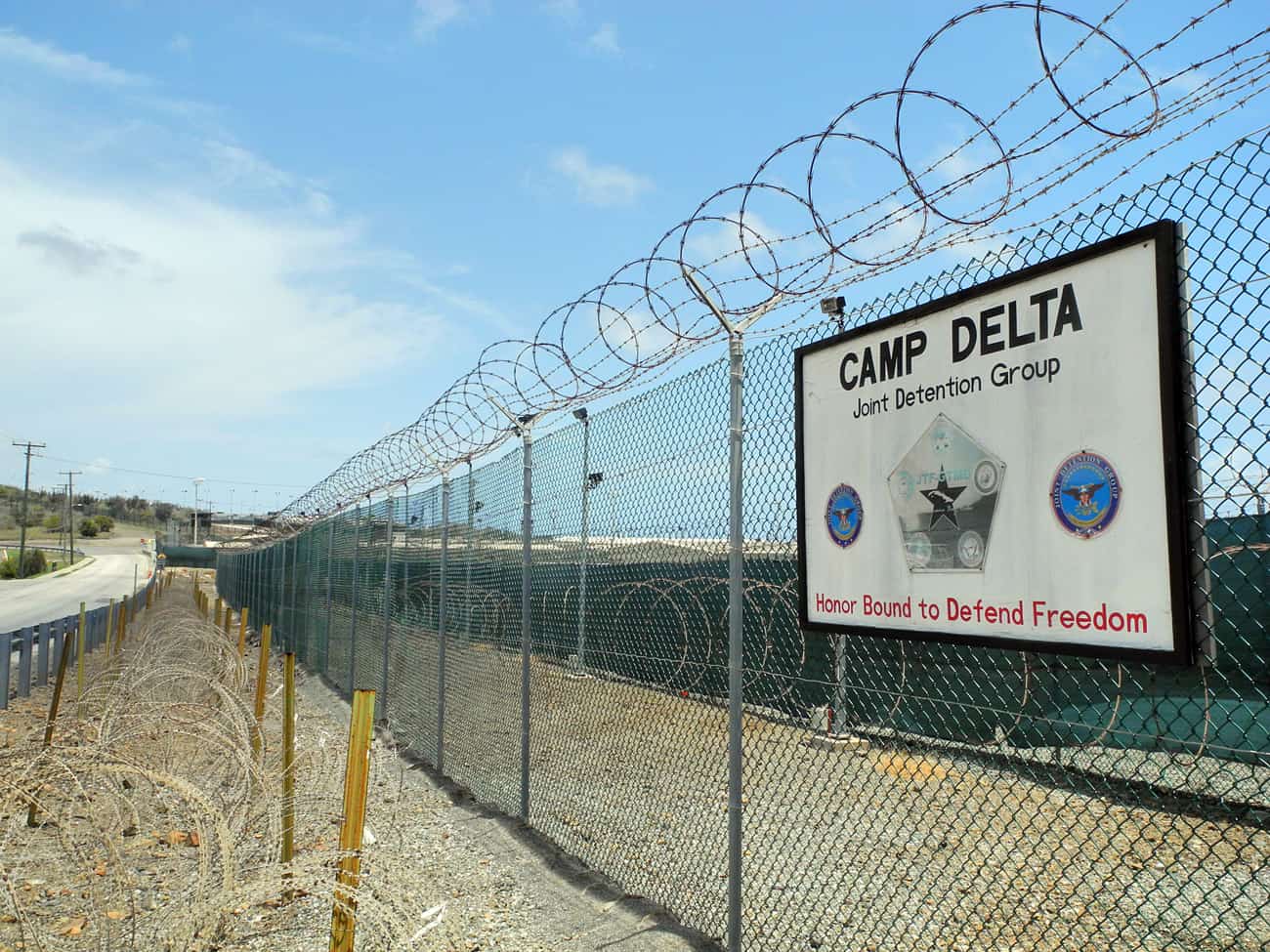WASHINGTON, D.C. — The Obama administration is accelerating its efforts to shut down the Guantanamo Bay detention center, preparing to move dozens of inmates out of the prison in coming months in a step forward for President Barack Obama’s redoubled attempt to achieve a core national security objective before he leaves office.
U.S. officials, describing administration plans to significantly reduce the Guantanamo population over the next six months, said they are in talks with a wide range of countries that they hope will accept all 64 detainees now approved for transfer.
President Obama has already spoken to fellow heads of state in an effort to arrange transfers, the officials said, one sign of the increased personal role they expect he will take as he inches closer to shuttering Guantanamo.
“He does not want to leave this to his successor,” Paul Lewis, the Pentagon’s special envoy for shutting down Guantanamo, said in an interview.
After a virtual halt to detainee transfers in 2011 to 2013, officials hope to whittle the prison’s population down from the 132 to the mid-120s by the middle of next month. That is roughly half the number of detainees housed at the military complex in Cuba when Obama took office in 2009.
Defense Secretary Chuck Hagel has approved the transfer of five detainees to a host country by the end of 2014, officials said, bringing the total number of transfers this year to 28. An additional five or six prisoners are expected to be moved in the first weeks of January.
Obama remains a long way from achieving his goal of closing Guantanamo, and could yet be forced to threaten executive action if he cannot overcome congressional opposition to moving or releasing detainees. But officials are optimistic that they can make significant progress in pressing other countries to accept transfers.
They are betting in particular on leaders in Latin America, who they hope will follow the lead of Uruguay, which welcomed six Guantanamo detainees earlier this month. They are also hoping that Obama’s decision to upend U.S. policy on Cuba and recent Vatican calls to close the prison will incentivize potential host countries.
See also: Mujica: US admits former Guantanamo prisoners in Uruguay had no ties to terrorism

At the same time, officials must still find a way to resolve the fate of detainees from Yemen, who make up the largest share of the remaining detainees and who are unlikely to be sent home any time soon as a consequence of U.S. concerns about militant activity in their home country.
“We’ve been able to break the log-jam,” said Clifford Sloan, who later this month will step down from his position as Lewis’s counterpart at the State Department. “There’s a very clear path ahead for significant progress and ultimate closure of the facility.”
The accelerated effort to close Guantanamo is at the center of a larger effort to wind down a war-time detainee system that began in the wake of the Sept. 11, 2001, attacks.
Also this month, the U.S. military shut down the Parwan detention facility in Afghanistan, which held a small number of prisoners on a military base near Kabul. Parwan was a final vestige of what was once a massive U.S. military operation to capture, process and house around 30,000 prisoners in both Afghanistan and Iraq.
If officials can find a home for all 64 detainees who are now cleared for transfer out of Guantanamo, they will then tackle the even harder task of dealing with the remaining prisoners. Ten detainees, including five accused of plotting the 9/11 attacks, are at some stage of a military trial process. Almost 60 more are slated to undergo an official review that may result in some being deemed eligible for transfer. But officials expect that others — perhaps over a dozen — will remain in legal limbo forever, considered too dangerous for release but ineligible for trial due to insufficient or problematic evidence.
Increasingly, Obama is making a fiscal argument for shutting the prison, which costs $400 to $500 million a year to operate. Keeping the lights on at Guantanamo becomes even more costly on a per-detainee basis as the prison population falls.
“It is contrary to our values and it is wildly expensive,” Obama told CNN over the weekend.

But Obama faces significant obstacles to closing the prison, including deep congressional opposition and turnover among Obama’s top detainee officials. Both Sloan and J. Alan Liotta, a senior Pentagon official on detainee policy, are stepping down around the end of the year.
There has also been friction between the White House and Pentagon over the pace of detainee transfers.
Administration officials see glimmers of hope in Congress despite lawmakers’ longstanding ban on moving prisoners to the United States for trial or detention. They hope that Republican Sen. John McCain (Arizona), who has expressed some support for closing the prison, will build momentum as he takes leadership of the Senate Armed Services Committee next year.
But James Inhofe, currently the committee’s top Republican, cautioned that political faultlines on Guantanamo may remain unchanged.
“Democrats and Republicans in the House and the Senate — they’re not real excited about lining up with him on these things that he’s doing,” Inhofe said. “I don’t think he’ll get by with it.”
Congressional objections are driven in part by the re-appearance of some released American detainees on the battlefield. U.S. intelligence officials have confirmed that 17 percent of the more than 600 Guantanamo detainees released or transferred since 2002 have re-engaged in militant activity; another 12 percent are suspected of doing so.
The phenomenon is not limited to Guantanamo. Abu Bakr al-Baghdadi, the head of the Islamic State, was once a prisoner at a U.S. detention center in Iraq.
Obama “is definitely putting his agenda way ahead of our national security,” Inhofe said. “He should not be doing this, but it’s consistent with other things that he’s done.”
Officials declined to say what actions Obama would, or could, take if hoped-for congressional support does not materialize. But any steps to circumvent Congress are sure to garner the same kind of Republican outrage that followed the president’s recent executive action on immigration policy.
Liotta said that the risks of transferring or releasing detainees could be mitigated, but not eliminated entirely. “The only way to have a zero re-engagement number is to never release anybody, a position the Defense Department has never supported,” he said.
Julie Tate and Karen DeYoung contributed to this report.
© 2014, The Washington Post






